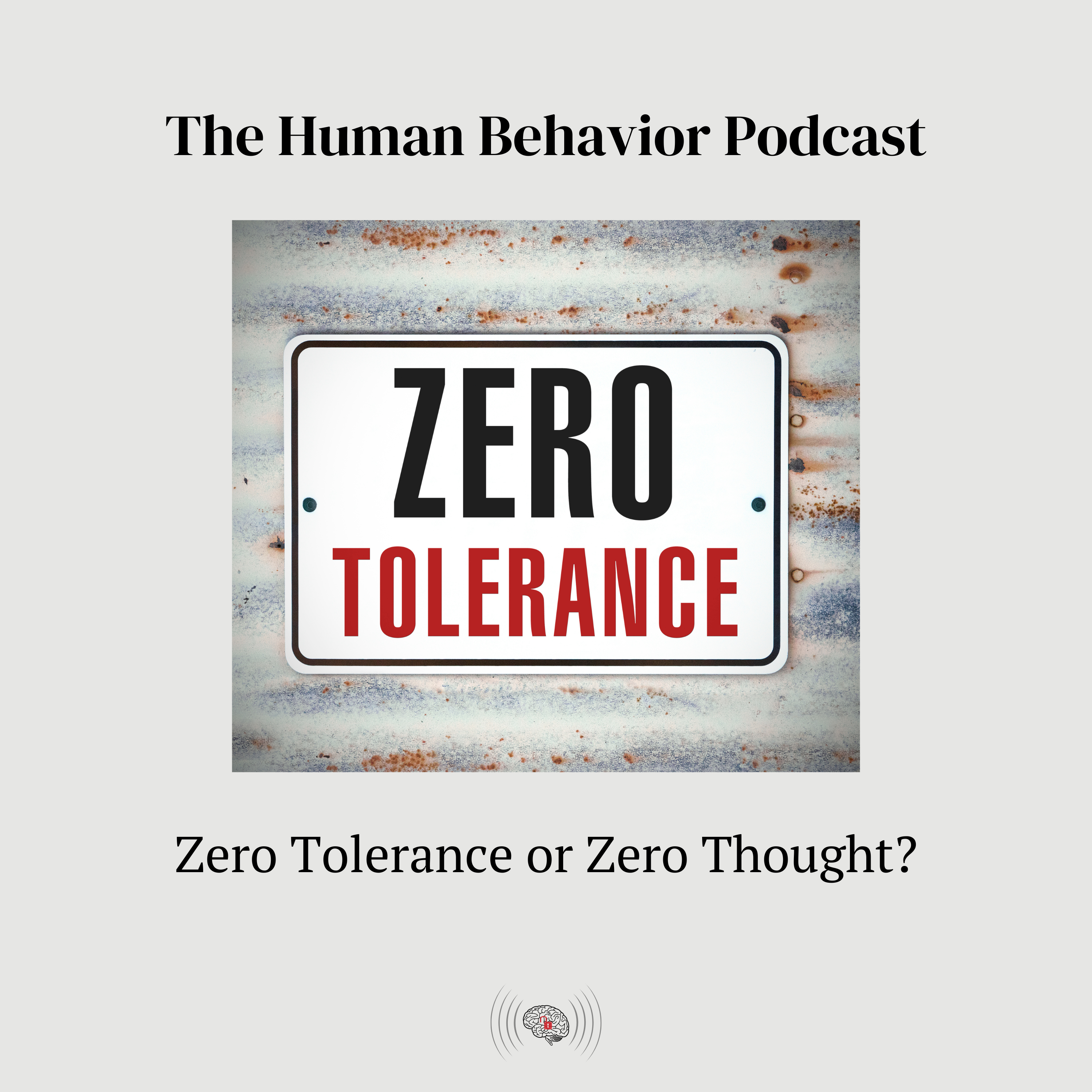In this eye-opening episode of the Human Behavior Podcast, we delve deep into the complexities and unintended consequences of zero-tolerance policies. The episode, titled “Rethinking Zero Tolerance or Zero Thought,” begins by questioning the efficacy of such policies in making our communities safer. The episode uses a tragic incident at Benito Juarez High School in Chicago as a case study to highlight how bureaucratic red tape and miscommunication between public schools and law enforcement can lead to disastrous outcomes. This sets the stage for a broader discussion on the flaws and inconsistencies of zero-tolerance policies.
The episode argues that the inflexible nature of zero-tolerance policies often leads to unjust outcomes and can even fuel violence. Drawing from personal experiences in law enforcement, the host shares gripping stories that illustrate the importance of situational judgment. For example, the episode contrasts the cases of a young father in Detroit caught with minor drug charges and Air Force Academy cadets involved in more severe drug offenses. These stories emphasize the need for discretion and the importance of considering individual circumstances in decision-making processes.
The podcast also tackles controversial incidents like a school security guard being fired for repeating a racial slur in an educational context. This example underscores how a one-size-fits-all approach can overlook the nuance and complexity inherent in human behavior and decision-making. The discussion then broadens to explore the conflict between personal autonomy and societal regulation, critiquing how zero-tolerance policies stifle discretion and trust. By contrasting rigid regulations with more flexible, oversight-driven approaches, the episode illustrates the importance of balancing security and civil liberties.
In the first chapter, “Unintended Consequences of Zero-Tolerance Policies,” the podcast examines the complexities and unintended consequences of these policies through real-life examples. The tragic shooting at Benito Juarez High School serves as a poignant illustration of how rigid policies can lead to bureaucratic hurdles and miscommunication between institutions. This delay in justice exacerbates violence instead of preventing it. The episode scrutinizes the rationale behind zero-tolerance policies and compares them to more nuanced approaches within the legal system. Through various case studies from education, criminal justice, and corporate ethics, the host argues for the necessity of human judgment, empathy, and flexibility in policy implementation.
The second chapter, “Flaws in Zero Tolerance Policies,” delves into the inconsistencies and dilemmas that arise from enforcing these rigid rules. The host shares personal stories from a law enforcement career, illustrating contrasting scenarios where discretion played a critical role. The episode discusses a case involving a young father in Detroit caught with minor drug paraphernalia and another involving Air Force Academy cadets found with a significant amount of drugs. These examples highlight the need for situational judgment and emphasize the importance of allowing for context in decision-making processes.
In the third chapter, “Complexity of Zero Tolerance Policies,” the podcast explores the inherent conflict between personal autonomy and societal regulation. The episode critiques zero-tolerance policies, highlighting how they stifle discretion and trust, essential elements for effective leadership and teamwork. By contrasting rigid regulations with more flexible approaches, the episode underscores the need for thoughtful, research-backed amendments to laws to ensure due process and logical policymaking.
The fourth chapter, “Flaws in School Dress Code Policies,” addresses the complexities of implementing policies and the balance between precaution and overreach. The episode explores the need for reasonable suspicion and probable cause when making decisions and emphasizes the importance of diligent research over lazy, zero-tolerance policies. The discussion highlights a case of a student penalized for wearing a controversial t-shirt, illustrating the challenges of enforcing dress codes and the inconsistencies that can arise.
In the fifth chapter, “Importance of Intent in Policy Enforcement,” the podcast examines the complexities of educational policies, dress codes, and free speech within schools. The episode uses real-life examples to illustrate the necessity for case-by-case evaluation, emphasizing the need for policies that consider specific contexts and potential threats to student safety. By focusing on the intent behind actions and rules, the host advocates for a more nuanced approach to managing behavior and ensuring fairness in educational settings.

Comments are closed